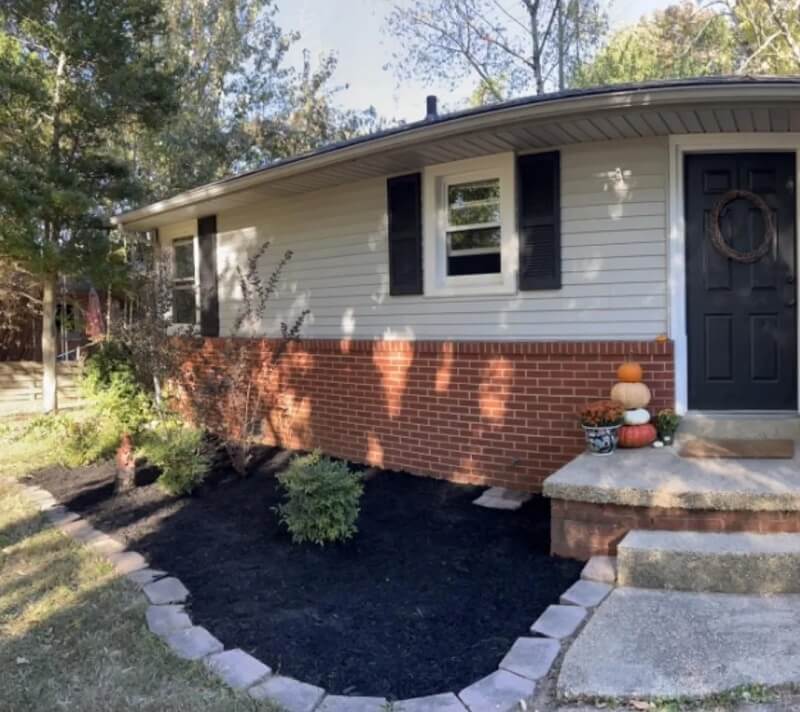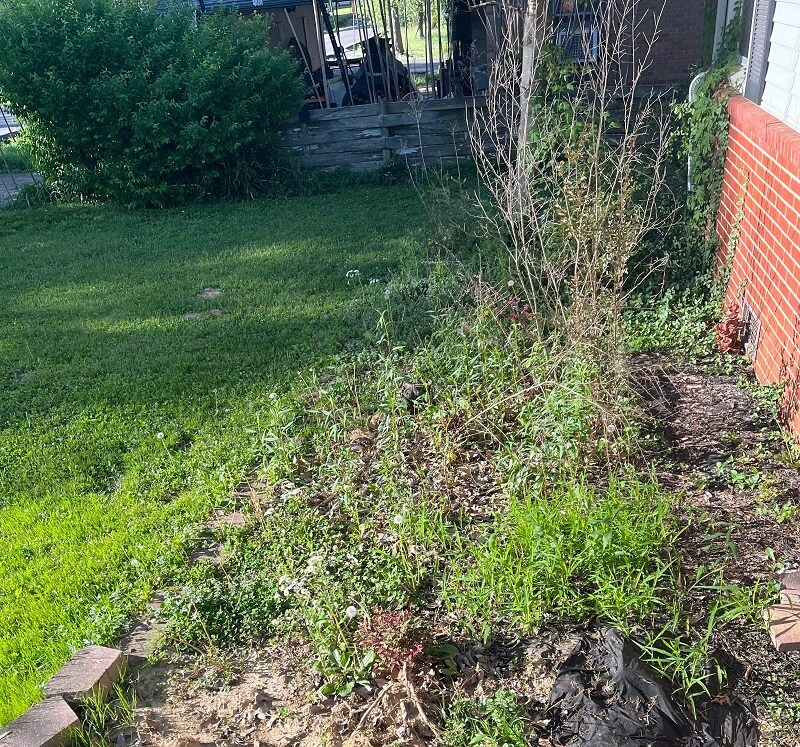A renter who made a "horrible" landscaping mistake took to Reddit to find out how to spruce up their home more sustainably.
Before-and-after photos showed it took two years for a new weed barrier and fresh mulch to devolve into a mess of overgrown weeds.
"I shudder every time I walk up to the house," they wrote. " ... What would you do to clean this up without spending a ton of money? It's a rental after all."


One commenter advised avoiding spreading mulch atop landscaping fabric.
"As it breaks down, it can't compost back into the soil due to the barrier," they said. "It'll just create new debris for seeds of all sorts to sprout on top of the barrier."
Someone else responded: "I never knew this. Which is why our yard looks like trash with mulch never breaking down over the plastic it was placed over. We bought the house that way. We gotta get that plastic pulled up."
Weed barrier, also known as landscaping fabric, is a misnomer. It doesn't prevent weeds and often makes weeding more difficult since the shoots can root into the textile or puncture it before spreading their tentacles underneath.
The expensive product is usually made of petroleum-based plastic, meaning it sheds microplastics and leaches harmful toxins into soil and water. This is particularly problematic if you're growing your own food.
Cardboard and newspaper are better, more natural options, as is mulch on its own.
There are other techniques to help you avoid these issues, including replacing turf grass with clover or buffalo grass, which don't require as much maintenance or water, saving you valuable time and money — up to hundreds of dollars per year. Plus, you're protecting the environment from water waste!
You can also reduce your use of chemical fertilizers and pesticides with these and alternative native plants, which have adapted to thrive in local ecosystems. Rewilding your yard this way is great for your wallet and the wildlife, since pollinators and other visitors love native plants.
Join our free newsletter for easy tips to save more, waste less, and help yourself while helping the planet.









